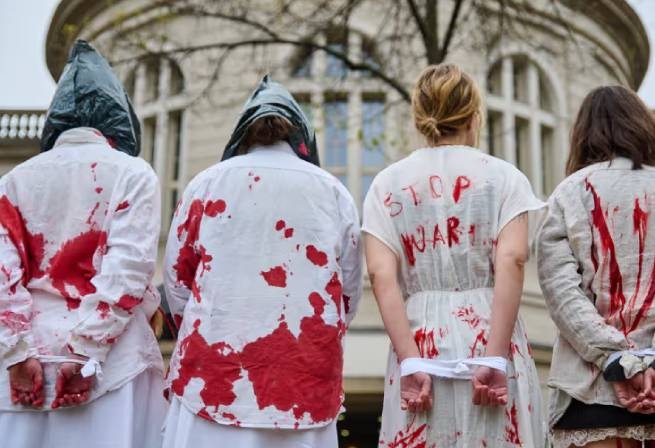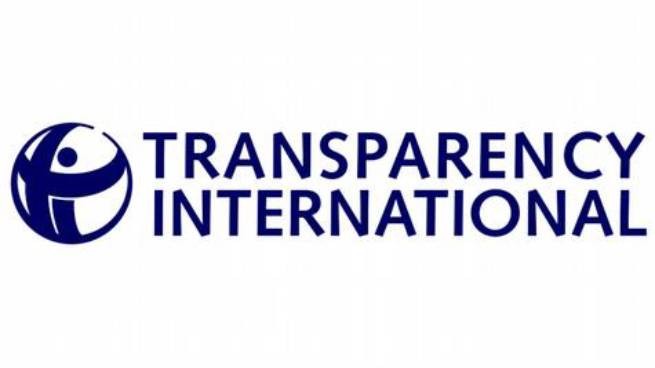A report by Transparency International claims that corruption in EU is growing and has reached its highest level in ten years.
According to experts from the international organization Transparency International, published annual report “Corruption Perception Index”, Denmark is the least corrupt country in the world, taking first place in the ranking. It shows the level of corruption in the public sector of 180 countries, using a scale from zero (very high) to 100 (lowest). Following Denmark, occupying second and third places, are Finland and New Zealand.
Despite their high rankings in the overall list, several democratic European countries – Sweden (82), the Netherlands (79), Iceland (72) and the UK (71) – scored the lowest on the Corruption Perceptions Index since it was first published in 2012 year. Transparency International Regional Coordinator for Western Europe Flora Cresswell says:
“The fall in the region-wide CPI in Western Europe and the EU suggests that European governments must take fighting corruption and upholding the rule of law more seriously. Countries must raise their standards and better comply with their own regulations to strengthen the fight against corruption, ring-fence the system justice from interference and block powerful interest groups in politics.”
Transparency International experts claim that in 3/4 of European countries the fight against corruption has stalled or lost its former activity.
Denmark scored the most points confirming non-corruption – 90. Finland (87) and Norway (84) follow, and Hungary (42), Romania (46) and Bulgaria (45) have the lowest points. Of the 31 countries in this region, only six have managed to significantly improve their positions since 2012: the Czech Republic (57), Estonia (76), Greece (49)Latvia (60), Italy (56) and Ireland (77).
Compared to the results of the 2015 CPI, the figures for Austria (71), Luxembourg (78), Sweden (82) and the UK (71) decreased significantly. And Poland, which scored 54 points, has dropped seven places over the past decade due to “the actions of the now former ruling Law and Justice party” (PiS) to monopolize power to the detriment of public interests,” the report says. The report also emphasizes that Greece (49) ranked very low on the 2023 list due to weak judicial autonomy.
However, even those countries that took first place in the ranking have difficulty curbing abuses in the public sector, the report’s authors say. They point out that the authorities “do not hold companies that pay bribes to gain access to foreign markets properly accountable.”
The report cites a case in the Netherlands (79) where authorities faced criticism for their decision not to prosecute Shell over bribery in dealings with a Nigerian oil company, especially in light of shocking acquittals in Italy in the same case.
The organization also refers to a recently proposed EU anti-corruption directive that would require member states to “criminalize foreign demand-side bribery.” Some European countries have already criminalized the supply and demand of foreign bribery. However, they rarely take action against foreign officials.
Some of the biggest corruption scandals in recent history have involved money laundering through banks in EU countries such as Denmark (90), Germany (78) and Sweden (82). The failure of these governments to provide adequate oversight of banking entities is one of the reasons why a new anti-money laundering authority at the European Union level is currently being developed.
The authors also found that Switzerland (82), despite scoring high on the CPI, has not shaken off its reputation as one of the world’s “money laundering hubs,” where foreign corrupt elites can easily find intermediaries to set up and operate companies on their behalf. trusts. A bill is under consideration that is intended to impose additional obligations on lawyers and other responsible persons to suppress financial transactions of a criminal nature.
In Ireland (77), according to the report, access to beneficial ownership registers is difficult. The same problem is typical for France (71) – the beneficial owners of 61% of companies owning real estate in the country cannot be identified. A study by Transparency International found that access to such information is significantly limited for the public, NGOs and journalists across the EU. writes euronews.
Russia continues to fall in the rankings. From year to year it gains fewer and fewer points, and in the Corruption Perceptions Index 2023 it again dropped another two positions compared to 2022, taking 141st place. It shared it with Kyrgyzstan, Uganda and Guinea, having lost 8 positions since 2012.
Ukraine took 104th place; Transparency International experts note the presence of corruption risks that arose in connection with the start of the Russian invasion in 2022. But the country, like all previous years, continued to rise in the ranking due to “restructuring the judiciary, strengthening the independence of the judicial system and increasing the capacity of the prosecutor’s office fighting corruption,” the CPI said in its analytical note. Despite these successes, the report says, there is still a significant number of high-level corruption cases that raise serious concerns.







More Stories
ELSTAT: inflation increased by another 3.2% in March
“Disappointing” second poorest EU country
Greece ranks last in the EU in terms of investment as a percentage of GDP in 2023